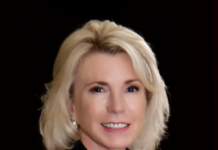Dr Lara Hochman Podcast Transcript
Dr Lara Hochman joins host Brian Thomas on The Digital Executive Podcast.
Welcome to Coruzant Technologies, Home of The Digital Executive Podcast.
Brian Thomas: Welcome to The Digital Executive. Today’s guest is Dr. Lara Hochman. Dr. Lara Hochman is a family medicine physician and a medical matchmaker. She is an advocate for fellow physicians’ well-being amidst rising burnout and dissatisfaction.
Her own experiences led her to discover the ways physicians lost autonomy and how to reclaim their focus on helping patients. She founded Happy Day Health, a boutique physician matchmaking agency to match well run private practices with physicians who are interested in avoiding burnout and who enjoy practicing medicine.
Well, good afternoon, Dr. Hochman. Welcome to the show!
Lara Hochman: Thank you! Thank you so much for having me here today.
Brian Thomas: Absolutely. I love doing these, every single day. My audience is tired of me saying that, but truly my passion is getting to speak to somebody new and hearing their wonderful and unique story.
So, Dr. Hockman, let’s jump into your first question here. What personal experiences as a family medicine physician led you to identify the need for happy day health and how has your journey influenced the services you offer to other physicians?
Lara Hochman: Yeah, it’s been a huge influence. You know, quite a few years ago, I was extremely unhappy in practice, which is very common.
There are many physicians, and I would say most who love the practice of medicine, but hate What it’s become all the admin and paperwork and off to hours work. And, you know, all of that. I mean, I was first to drop my kid off at daycare and lost one to pick her up, even though I was working part time and still working evenings and weekends.
And there was a lot, you know, behind the scenes that goes on in medicine that was making me unhappy. And so I left medicine entirely. Actually my, my private practice or the one I was working for, it was bought by a big hospital system and the system gave a contract that was really abusive and bad and they wouldn’t negotiate at all.
And so, I was like, well, I hate it anyway, I’m going to leave. And so, I left the practice of medicine. And was so happy about it and kind of fell back into it for a company that I thought, well, what have I got to lose? I’ve already left, you know, it’s, it’s very empowering to quit a job, apparently. And I left and came back and absolutely loved medicine again, because it was a job that had taken away all of the admin and all of the bureaucracy and all the silliness that happens in medicine.
And that’s kind of when my eyes were opened to what medicine could be and how it can change. So, at that point, I was like, well, I got to do something. And I loved helping other doctors come work with me in my practice and that word spread. And I, you know, that I was helping to recruit physicians to practices.
And that’s kind of how I got into the physician recruiting space because I was doing it anyway, but with a very heavy physician advocacy bend. And so that’s essentially how I started happy to help. I was just doing it anyway. And then I turned it into a business to maybe make a little bit of money off of the many, many, many hours that I was putting into it anyway.
That’s kind of how I got started with this. I think, you know, not just seeing the unhappiness in medicine, but experiencing it myself and how it can be better. And there’s this mass exodus of doctors from medicine right now. And to have been a part of that and come back, I think I can see very clearly what’s going on and how I can be part of the solution.
So, this is kind of my way of being part of the solution to what’s going on in medicine today.
Brian Thomas: Thank you for sharing. You know, Dr. Hockman spoke to me being in health care as well, and on the tech side, I have a lot of colleagues, friends that are physicians and practitioners, and they complain about the same thing, and it’s just amazing how many Practitioners are getting burnt out because there’s a whole other layer of administrative work.
And I know this because being in healthcare, I saw it firsthand of the things that need to be reported on, on top of just giving good patient care. So, I appreciate your story. I’m very empathetic to what you all go through. So, thank you again. And Dr. Hockman, burnout is a significant issue in the medical field as we just talked about.
Can you share how you work with Happy Day Health is helping physicians find career paths that reignite their passion for medicine and help them avoid burnout?
Lara Hochman: Yeah, burnout is just rampant in medicine. One of the things that I do amongst many is I work with practices that actually truly care about their physicians and want to hear what the physicians have to say.
And in doing that, finding those doctors and to join these practices, these doctors are no longer burned out because they’re leaving a system where they have no autonomy. They have no flexibility. They’re basically just another cog in the wheel. And here that they come and they get to work somewhere that’s enjoyable.
And that just changes everything. I mean, the burnout, when you go work for a practice where the physician that you’re working next to is the same person who owns the practice. And actually, cares about work life balance. There’s a huge shift that can happen as far as how the practice is managed. What is put into place to help with burnout because the owner of the practice also doesn’t want to be burned out.
They’re seeing patients and they’re running a practice. That is one way that I do it as far as like, you know, on a very small scale. There are many other things I do within Happy Day Health as far as collaborating with other people in, you know, how they are helping the burnout epidemic really. And so, a lot of collaboration and a lot of getting the word out there and empowering physicians.
To not just lay down and let people walk all over us. It’s about standing up there, making our voices heard, saying no to things that just don’t make sense or that, you know, are quite frankly abusive and not just doing nothing, but do something. It doesn’t have to be something big, like start a company, but every little bit counts.
So. Getting the word out there is, is one of my favorite things to do because I think it’s what will have the biggest impact.
Brian Thomas: Thank you again, lead by example. You’ve been in the trenches, experienced some challenges in this environment and, you know, helping others obviously gives you purpose, but also shows people the way to live a more balanced life, a healthy life, and you know, get out of that rat race as we call it.
So, thank you. Dr. Hockman, how do you help physicians regain their autonomy and join their practice, especially those who have transitioned from private practices to larger healthcare networks?
Lara Hochman: You know, the larger healthcare networks are a lot trickier. Typically, they have, this is the way we do it. End of story.
So, when it comes to that, it’s really just about helping docs get their voice out there, say no, have boundaries. It’s okay to not take on extra work. This comes from the education part. So, I typically do not work with large healthcare systems because they don’t treat their doctors well. If a system were to come to me and I felt that they would actually treat their doctors really great, I would be open to working with them.
But as of yet, I haven’t come across that yet. The larger healthcare networks, you know, I think boundaries is the most important thing. So I do have a network of recruiters that I work with. When I have a physician who is looking to work in a large healthcare network and prefers to not be in private practice, when I help them to, you know, kind of connect them through my network, then I like to stay in the background and help them negotiate and all of that.
So, there was one physician who I was in the background helping her negotiate and just kind of see what in the What in her contract was not so great. And I’m not a lawyer, so, you know, there’s that caveat there, but I ended up helping her to increase her salary. And as a result, the entire department had their salaries increased.
So, part of it is just. Speaking, you know, not being a doormat and we’re people who are really smart and really awesome and we have great ideas. So, we need to get our word out there. What we have to say is important. And so, a lot of what I do for physicians in the larger healthcare networks is mainly education around what we’re capable of and what we can do and what we are allowed to not do.
Brian Thomas: Thank you. That is very helpful. And again, I know you’re doing this coming from your heart. You’re doing it fulfills you knowing that you’re helping others. And I know it is challenging to navigate some of those larger networks, but I’m so happy to hear that you are reaching out to other physicians that are struggling or may need some help in that balance in life, that work life harmony, as we call it.
And Dr. Hochman, looking forward, what is your vision for the future of health care and the role of that physician advocacy and well-being will play in shaping it? How do you see Happy Day Health evolving in this context?
Lara Hochman: My vision for the future of health care is good. There are more and more of us as physicians who are standing up and doing something, whether it’s You know, me starting company and helping physicians find better jobs, or, you know, there’s doctors, many coaches, many business coaches and all sorts of things.
You know, lawyers are stepping in. There’s, there’s a lot of people who are making a difference and the more of us that do it, I think that will play a huge part. And, you know, those of us in the physician entrepreneur space love to collaborate with each other. So, I think we can make a big difference. You know, I don’t know where it’s going to go, obviously, but I do see.
All right, I should say I hope that there are less and less regulations placed on healthcare. Unfortunately, the FTC ban on non competes was ruled out just a couple of days ago as of the time of this recording, but I think that there will be better physician autonomy in part because I’m seeing the swing starting to turn back to physicians going into private practice.
And when you have physicians who are not all part of big systems, we are able to have more of that voice. So, I do think that the more of us in physician advocacy, there are the more changes there will be and also the more physicians in private practice. So, I do see the future of healthcare being good.
But I think it’s going to get better at the same time as get worse until eventually, hopefully it all gets better. Happy Day Health has a long way to go. I see a lot of changes as far as how it’s going to evolve. You know, I’ll save it for the future, but, but there’s a lot coming for Happy Day Health. I think there’s a lot in the physician employment space that needs to be done and that can be done better.
And so that will be starting, you know, in the future, I think we will evolve with the evolving landscape of healthcare.
Brian Thomas: Thank you. I appreciate that. And again, I know there’s going to, sometimes things will get worse before they get better, but I think you’re on the right track. And I know there’s a lot of physicians that certainly are in the same boat as you, so to speak.
They are working towards the same goal. So, I do appreciate that and just love your story and the continued success to you in this. Dr. Hockman, it was such a pleasure having you on today and I look forward to speaking with you real soon.
Lara Hochman: Thank you so much for having me.
Brian Thomas: Bye for now.
Dr Lara Hochman Podcast Transcript. Listen to the audio on the guest’s podcast page.











